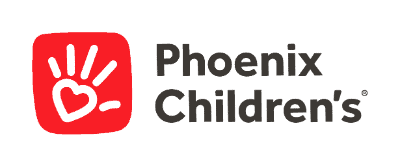With October being Global Diversity Awareness Month, I was excited to be asked to reflect on how my work at DataRobot brings awareness to diverse cultures outside of my own. I didn’t have to think too hard about saying “yes” to the assignment, and it has been fun to spend time reflecting on how much I’ve learned about and from others in my time at DataRobot. I’ve learned that it’s not about you, the listener, but about others and their experiences, but also that a diverse workplace leads to learning and growth in ways you may not expect and that empathy is the primary requirement for showing up as an ally. But first a little context…
The Diversity of DataRobot
To understand some of the opportunities to be impacted by diverse cultures and groups, you should know that DataRobot is an incredibly widespread global company – especially for a company of its size. It is not unusual to be in a video meeting with people from several different countries every single day. We are also of a size where we’re large enough that many different people groups and social identities are present – but small enough that you tend to know and interact with people regularly, often on a social level. Finally, even with all of this, I would never claim we are a complete model of diversity. We have plenty of work to do, and yet we do have a team makeup that allows me to reflect on the ways in which they have impacted me.
International Conflict
DataRobot is headquartered in Boston and continues to have the largest single cluster of employees in and around the city. However, we have large engineering centers in the Ukrainian cities of Kyiv and Lviv, along with smaller groups in Khmelnytskyi and other locations. The importance of our engineers there has always kept me aware of the little things, like paying attention to others’ holidays, working hours, and, of course, the nuanced turns of phrase we use everyday which mean nothing to people whose native language is not our own. From my first week of employment I learned the proper pronunciation of the Ukrainian capital is “Kyiv” (‘KEE—yiv’), not “Kiev” (‘kee—EV’), and a few months later, on my first visit to the city in 2018, I learned from my new friends during a walk through a war memorial that Ukraine and Russia have actually been engaged in a hot war over the Crimean peninsula since 2014, and that “people die there all the time, but there is no news about it anymore”.
Indeed, I was totally unaware of the armed conflict, much less any dispute at all. It was disorienting to learn a fact that was deeply meaningful to my hosts and for which I had no context. This was not only humbling, but made me acutely aware of the need to ask more questions, and to stay alert for learning opportunities. Of course, the world learned to pronounce Kyiv properly when Russia broadened this conflict in February of 2022 after telegraphing its intent to an incredulous world for months.
The impact on my everyday work with our team members there from that time until now – from my safety and true distance from their experience – has been very meaningful to me. I often hesitate to frame such monumental things in terms of the impact on me, as one of the greatest lessons has been how little any of their experience was about me. In fact my inability to do or say anything truly effective was the starting point of the lessons the morning I started making video calls to check on people back in Feb. 2022.
The only required response was empathy and understanding. What my team wanted to know from me was that we wouldn’t turn our backs on them as a company and take away their jobs. In the meantime I have grown in fondness for our friends as I have been witness to bravery, resilience, activism, righteous defiance, their continued productive work, and strong relationships which the team in Ukraine has shown throughout. I could say a great deal more, but should avoid writing a book. The point is that culture and geography have some obvious impact in daily life so long as you’re willing to pay attention and learn; and that sometimes the differences can make you feel as if you’re in totally different worlds. But even then, people are similar in their need for your empathy and whatever support you can provide in that moment regardless of your ability to actually experience what they experience. Even while the war in Ukraine continues, a new one is starting in Israel where we also have co-workers and friends. I am no better equipped now to ‘do something’ for these friends than I was before. But I do know that understanding, room for flexibility as they deal with their lives, and an ear to listen as they talk it out free from any commentary, can be impactful in ways I would not have previously understood.
Gender Identity
I was impacted greatly on both a personal and professional level the day one of our employees asked for a 1:1 to tell me that he would soon be coming to work as she, as she was now known everywhere else in her life. There are lots of viewpoints on gender identity, and while I suspect (and hope) that many individual viewpoints are more moderate than the extremes of those who live off their public voices, my own interactions with actual persons had been limited to those who had set their identity long before I knew them.
And in any case, I had not put a lot of thought into what that change would be like. Again, it’s a moment that was not about me, but which I was in and which was profound for me. Here was a long time colleague and friend that was making a bold move to live in a way that would make them happy. What she wanted from me was only my understanding and support. To be clear, she did not need it. She had come to me to say that while she had considered starting over somewhere else, she felt her stellar work record and reputation afforded her the respect to make the change where she was known. I was really moved, and in that moment felt very proud of her for making this stand, and couldn’t express strongly enough my support and appreciation that she would bring her decision to me in a 1:1 conversation.
Truly great work reputation aside, I thought “who would stand in the way of such a personal decision?”. What I wanted to know was what support would look like for her – and in the first take it was to not treat her differently; it was to respect and model the name change in company communications. For her, it was as simple as that and for me, a seemingly low bar being an ally in my opinion.
In that moment, it was an emotional reaction to a friend, but the experience makes clear how complicated it is to try and generalize from your own experience into the day-to-day life of another. It’s very much like the old statement, “In theory, theory and practice are the same. In practice, they are not.” So much is theoretical in understanding other humans lives and experiences. I don’t think it’s so far away that we cannot learn, appreciate others’ views, develop empathy, and even debate things with one another. But having the opportunity to actually interact with those who are living the experience is invaluable. The wider our circle and the more filled with diverse experiences, the greater our opportunity to learn and grow.
Educate Yourself
Perhaps you’ve heard that you shouldn’t make the underrepresented people in your life or work responsible for your diversity program or your personal education. This is great advice. Though you will be educated, proactive engagement is required, and putting the burden on others is like making them a show-pony or telling them that it’s important to them, but not really to you. The final reflection I’ll share is that one of my favorite ways to be impacted by diversity is to get recommendations for a diverse reading list. In the past few years, I’ve picked up “Born in Blackness”, “That’s What She Said: What Men Need to Know…”, “1491: New Revelations of the Americas Before Columbus”, a collection of Colson Whitehead novels, “Sex at Dawn: The Prehistoric Origins of Modern Sexuality”, “The New Jim Crow: Mass Incarceration in the Age of Colorblindness”, among others, based on personal discussions and intentionally distributed reading lists within the org. Like I mentioned, you can’t replace practice with theory, but you can get a long way toward preparedness and awareness by reading and educating yourself.
Learning & growth go hand in hand, and, as I said above, interacting with diverse cultures and diverse people groups – and really diversity of any kind that gets you outside of yourself – will grow you as a person. Importantly, it grows your capacity for empathy as you get more information about where others are coming from or going through – not only how you got here or merely what you care about.
Free trial
Experience the DataRobot AI Platform
Less Friction, More AI. Get Started Today With a Free 30-Day Trial.
Sign Up for Free
About the author
Jeff Gabriel
SVP, Engineering
Jeff has been involved in software development in many roles and in many industries over the last 24 years. For the past 5 years he has been leading teams developing the ML Platform at DataRobot, where he oversees the Engineering department. When not studying or practicing software in some form, you’ll probably find Jeff playing board games; reading a history book, or perhaps riding his bike.






